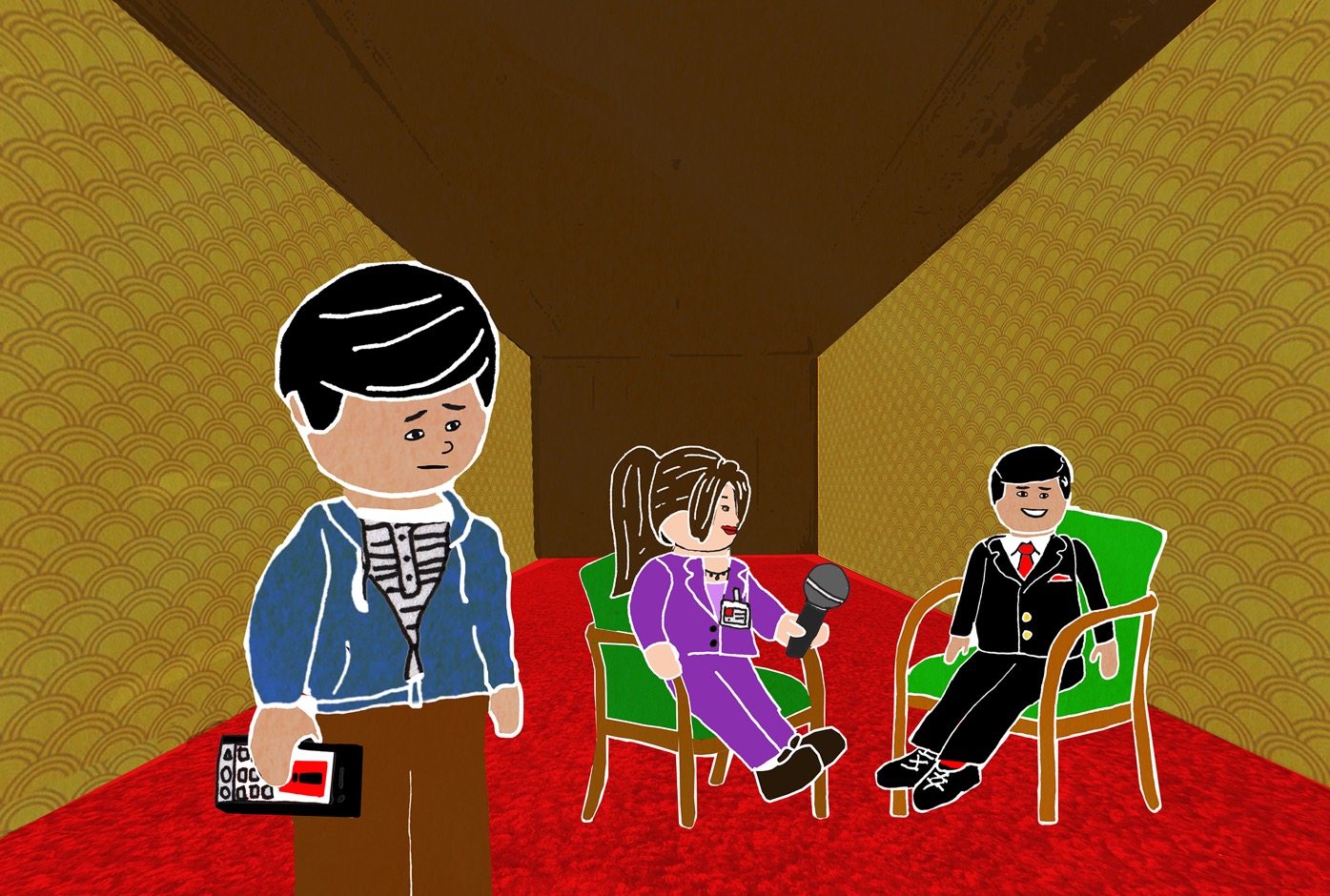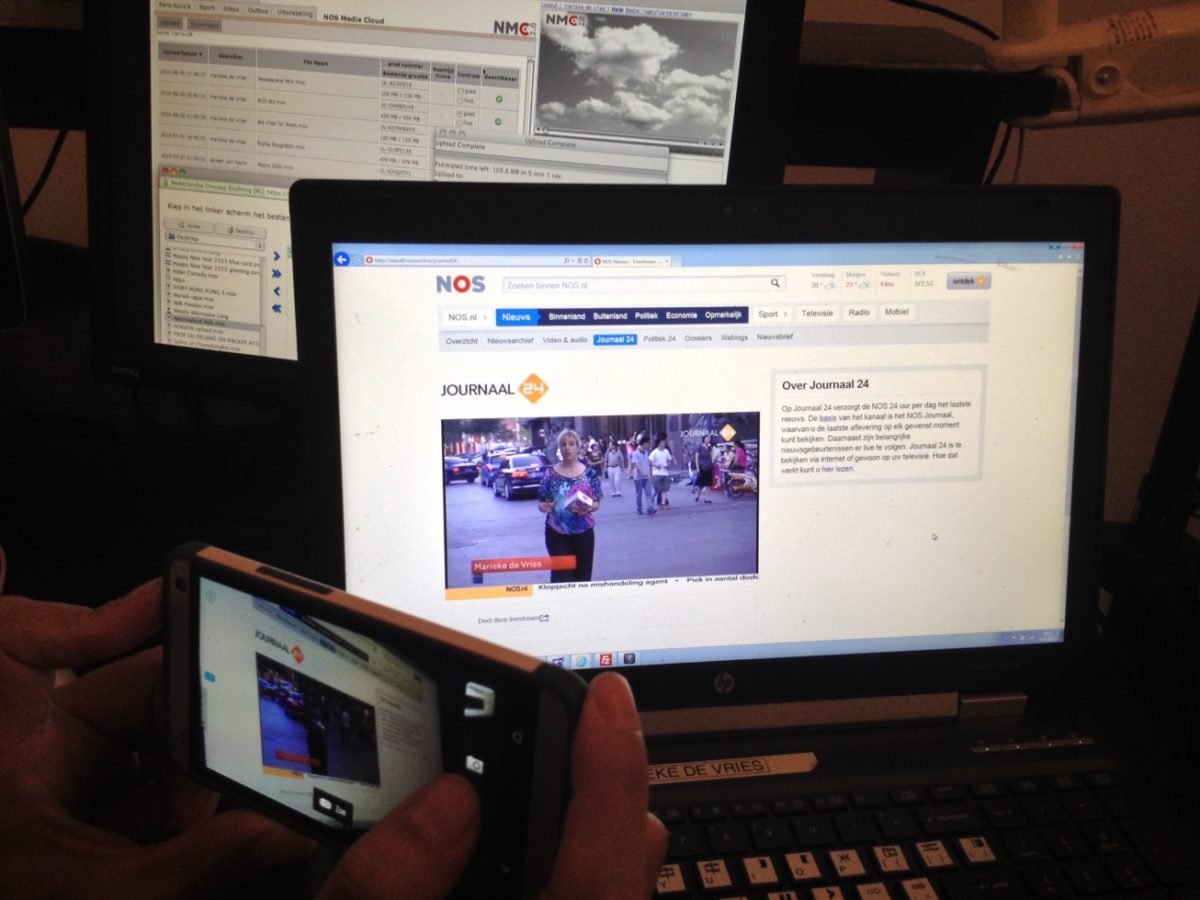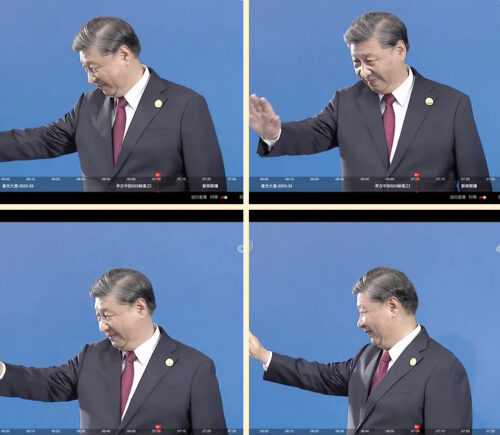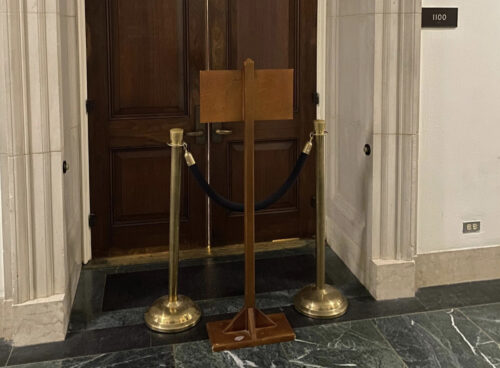Reflections of a Chinese reporter in foreign media

Illustration by Hannah Bae and Adam Oelsner / @eatdrinkdraw
“I’m exiting journalism bearing no illusions that press freedom in this country will get any better. The forces that constrained reporting when I entered are as robust as ever.”

In April 2014, I received a call from China’s economic planning ministry. Incensed by a story we just published about the country’s efforts to fight pollution and climate change, the ministry’s communications officer rattled off a slew of transgressions.
But to him, one offense stood out above all others. The room where the country’s top climate negotiator met us for an interview, we wrote, was the size of a basketball court. The frantic call with the ministry ended with a threat: delete that sentence from the article, or they would never talk to us again.
At the time, I was working in the Beijing bureau of the Financial Times. In granting an exclusive interview to an international newspaper, the ministry wanted to convince the world that Beijing was serious about tackling climate change — but the mention of the room size ruffled feathers. The reason? Officials there feared being caught in the crosshairs of an ongoing austerity campaign led by President Xi Jinping.
What we considered a general journalistic practice of setting the scene, the ministry saw as a threat to their reputation. We told them that any change to the sentence would warrant a correction saying we miscalculated the size of the room. Worried that it would draw further attention, the ministry backed down.
Four years on, as an incoming master’s student who has left the newsroom for the classroom, I find myself reflecting on a seven-year journalism career that allowed me to peek into China’s delicate relationship with the international press — and some episodes that sent chills down my spine.
Today, 585 foreign journalists are stationed in seven mainland Chinese cities, filing stories in a country where news never seems to be in short supply. Working alongside them are local hires like me whose role is vital to the operation of foreign news bureaus in China. We wear many different hats: researcher, translator, producer — even writer.
To work for international media organizations is to straddle the two worlds of sometimes conflicting values: one in which journalistic principles prevail, and the other an intricate web of politics and bureaucracies. We often play the role of middlemen between various government agencies and the media organizations who employ us.
The tasks we perform include researching story ideas, putting in interview requests, and occasionally writing the stories ourselves — these tasks you can probably guess. But sometimes we must also deal with the aftermath of the coverage. And so, when the reporting puts the government in an uncomfortable position, there can be unexpected jolts, and complaints can land on our laps.
This is especially true when the reporting goes local.
News assistants often play the role of middlemen between various government agencies and the media organizations who employ us.
My first memorable skirmish with local officials came during the early days in my career, in 2013, when I was a producer for the Dutch state broadcaster NOS in Beijing. That year, I traveled by train with our Beijing correspondent, Marieke de Vries, and a cameraman, to a Chinese city hailed by the local government as an up-and-coming regional economic powerhouse. It was anything but.
In the wake of the 2008 global financial crisis, the Chinese government unleashed a wave of infrastructure investments to juice the economy. A property boom ensued, creating a housing glut that plagued many Chinese cities.
Yingkou, a coastal town in northeastern Liaoning Province — population 2 million — was one of the so-called “ghost cities.” The town erected rows of empty houses overgrown by weeds and built wide roads despite sparse traffic. The construction spree did not impress everyone. We tracked down a local family whose home was demolished to make way for new developments. They decided to tell their story.
On a scorching summer morning, we met the family and briefly exchanged pleasantries. Outside, trucks loaded with building materials occasionally roared past their makeshift home, a ramshackle residence with metal exteriors that stuck out among rows of newly built apartments.
Our camera rolled — but not for long.
Barely 10 minutes into the interview, local government officials showed up. Their presence was a warning to the family, who knew that continuing the interview would risk punishment. Intimidated, the family politely asked us to leave.
But the officials did not disperse. They watched our every move as we went about the city filming the backlog of empty houses. Later that morning, we bumped into a farmer who was promised a house for his lost village home. Unsurprisingly, our interview with him was cut short, this time by a group of unidentified men who whisked him into a van and drove off.
Dumbfounded and enraged, my Dutch colleague asked me to call the foreign ministry in Beijing to make a complaint. Under the watch of local officials, I dialed the number but was told that we had to follow local rules when conducting interviews.
The officials tagged along for the rest of the day, eating where we ate and never out of sight. At night, two city officials visited me in my hotel lobby. We had an hour-long conversation, recorded by the officials, which veered between soft interrogation and get-to-know-you hobnobbing. We talked about Edward Snowden and, weirdly enough, Zhang Yimou, the acclaimed Chinese director, whom they despised. And naturally, I was warned of the perils that could come with working for foreign press. In their eyes, I was unpatriotic and a troublemaker.
The next morning, we boarded the train back to Beijing. Just as we were pulling into the city limits, my phone rang. On the other end was Yingkou’s propaganda chief.
“I would like to meet you in person in Beijing today,” he said.
“I’ve already spoken at great lengths with your colleagues last night,” I replied, trying hard to mask my impatience. “Call or message me, but I won’t be free to meet you in Beijing.”
With an apology, I hung up. My phone then buzzed with a text message.
“I still insist on seeing you because your family says you are really nice.”
My mind went blank for a few seconds. “What the fuck,” I blurted out loud. I told my colleagues what happened. Furious, my Dutch reporter suggested we turn to legal means to defend ourselves. I sighed and reminded her that this wouldn’t get us far in a country with a poor record of rule of law.
“The worst thing that could happen to you is that you get kicked out of China, but my family still lives here,” I told her. I panicked and decided to bow to the official’s request for the meeting.
The official repeatedly stressed that he only wanted to see me and warned me not to bring my reporter. My colleague, worried about my safety, accompanied me to the meeting that took place in a hotel lobby right across from our office.
With the presence of my Dutch colleague, the conversation took on a bizarre turn. He told us how he liked the Dutch football team and said he hoped we enjoyed the seafood in Yingkou. We cut short the conversation and returned to the office.
Soon enough, my phone rang again. “Please come and meet me again and don’t bring your reporter,” he implored. My colleague, her patience already running thin, wouldn’t relent. For our second meeting, she was watching me from about 10 feet away while the official and I chatted.
“Are you free this evening?” the official asked. “I’d like to take you to dinner, where we’ve prepared a small gift for you.”
I did not see this coming at all. In China, this was the euphemism for “bribe.” His message was simple: kill the story in exchange for the “small gift.” I politely rejected his proposal, leaving the hotel lobby stunned.
It turned out that the officials had not contacted my family. The veiled threat was just a tactic to coax me into meeting him. A few weeks after the story was broadcast, another official drove to Beijing and brought me a box of crabs, a local speciality. The gesture of goodwill was apparently to signal that the local government did not want me to bring any foreign reporters back to town.
The behavior of the local officials in Yingkou — thuggish and unctuous — made me sick to my stomach. It eroded my faith in the country’s civil servants and forced me to seriously weigh the risks of practicing journalism in China.
“The worst thing that could happen to you is that you get kicked out of China, but my family still lives here.”
In my seven-year journalism career, I never suffered serious consequences such as physical violence or government retaliation. But others have not been so lucky. Zhao Yan 赵岩, a former New York Times researcher, was given a three-year prison sentence in 2006 on charges of fraud, which he denied. The Chinese government previously accused him of divulging state secrets, following an exclusive Times report on former Chinese President Jiang Zemin’s decision to resign as head of the military in 2004. Both the Times and Zhao refuted that charge. In late 2014, Chinese authorities detained Zhang Miao 张淼, a Chinese employee at the German newspaper Die Zeit who helped cover the pro-democracy movement in Hong Kong. She was released without charge after nine months of detention.
By law, the Chinese are forbidden to be hired as full-fledged reporters at international news organizations in China. Instead, they work as fixers — a broad term that covers many journalistic tasks, but not independent reporting. Despite this, some foreign news bureaus in China in recent years have defied that rule by allowing the local staff to have independent bylines on nonsensitive stories. So far, there has been no pushback from the authorities, who have to some extent tolerated the practice.
But there’s a catch: you can’t just report on anything. I was once told by security officers — whom we are obligated to meet from time to time — that I could write stories about pollution and other social issues, but I should steer clear from any critical coverage of the top leaders.
A combination of political pressure and a lack of career prospects has led to a high turnover rate for Chinese employees at international news organizations. Since I joined the Beijing bureau of the New York Times in October 2015, there has been a steady stream of Chinese staff leaving for graduate schools outside of China. By the time I left the bureau in April of this year, almost all of the Chinese staff I began working with in late 2015 had already left or were leaving.
The fact that foreign media is often at odds with Chinese authorities is not helping.
For years, many Chinese bureaucrats have conflated news with public relations, a mentality that is as cultural as it is political. Family skeletons must be hidden from outsiders, according to a proverb — 家丑不可外扬 (jiāchǒu bùkě wàiyáng). Politically, Chinese authorities have never been comfortable with reporting that exposes government failings.
So it is no surprise that Chinese authorities often view Western media with trepidation, often accusing them of bias and unbalanced reporting. The country’s leaders want the international press to report in a way that is commensurate with the country’s increasing global stature. They believe the country deserves praise and recognition on various fronts, from poverty reduction to technological advances.
To be sure, China has achieved a lot in many ways. The Chinese are living longer, getting richer, and receiving better education. Yet in a country as enormous as China, complexities and dualities abound. There are still people battling ailments from pollution, farmers who live under the poverty line, and children without access to adequate education. These stories must be told.
When I found my first job in journalism seven years ago, I knew it was only a matter of time before I quit. Today, I’m exiting journalism bearing no illusions that press freedom in this country will get any better. The forces that constrained reporting when I entered are as robust as ever.
It’s truly been a privilege to have worked with some of the greatest journalists and editors — that valuable experience will surely prove beneficial as I return to school. But a sad reality remains: journalism has turned out to be a training ground instead of a career path I can pursue. As long as the Chinese government views the international press with hostility, Chinese reporters will remain marginalized and at risk. It’s an unpleasant situation, one for which I hope doesn’t get worse.







